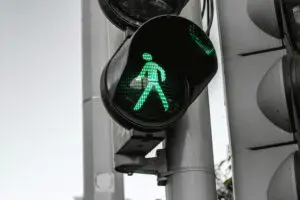What is Negligence?
Negligence is the failure to use a reasonable degree of care given the circumstances. The four elements of negligence are a duty owed to a plaintiff, a breach of that duty by the defendant, proximate cause, and injury or damage suffered by the plaintiff. It is essentially carelessness.
According to Black’s Law Dictionary, negligence is defined as “the failure to exercise the standard of care that a reasonably prudent person would have exercised in a similar situation.” As such, negligence refers to a failure to exercise the level of care that a reasonably prudent person would exercise in similar circumstances. It forms the basis of many personal injury claims and lawsuits, where a plaintiff alleges that their injuries or damages were caused by the negligent actions or omissions of another party.
Key elements of negligence include:
- Duty of care: The legal obligation of an individual or entity to exercise reasonable care to avoid causing harm to others. This duty may arise from professional relationships, ownership of property, or other circumstances.
- Breach of duty: A failure to fulfill the duty of care by acting or failing to act in a way that deviates from what a reasonably prudent person would do.
- Causation: The link between the defendant’s breach of duty and the plaintiff’s injuries or damages. It must be shown that the defendant’s actions or omissions directly caused harm to the plaintiff.
- Damages: Actual harm or losses suffered by the plaintiff as a result of the defendant’s negligent conduct, which may include physical injuries, emotional distress, property damage, or financial losses.
Legal principles related to negligence aim to compensate injured parties for their losses and encourage individuals and businesses to act responsibly to prevent foreseeable harm. For example, if your landlord doesn’t fix a rickety set of steps you let him to, and you fall through the steps a week later, the landlord is negligent in his duty of care. Understanding the elements of negligence is essential in personal injury cases and other legal disputes where liability is based on the failure to exercise reasonable care under specific circumstance
More information about Negligence
Is the Driver Always at Fault in a Pedestrian vs Car Accident?
Determining fault in pedestrian-vehicle accidents involves complex factors, as both drivers and pedestrians have specific responsibilities when using roadways. Pennsylvania’s comparative negligence law helps establish liability when both parties may share responsibility for an accident.

Understanding Fault in Pedestrian-Vehicle Accidents
Understanding road rules is critical for both drivers and pedestrians to navigate traffic situations. Drivers must yield right-of-way to pedestrians in crosswalks and be vigilant, especially in heavy traffic areas. Pedestrians must obey traffic signals, cross at designated crosswalks, and remain alert.
Pennsylvania’s Comparative Negligence Law
The law in Pennsylvania follows the approach known as comparative negligence. This means that if the pedestrian and driver are partially at fault in the event of a car accident, the damages recovered in the lawsuit may be reduced depending on the percentage of fault allocated to each. […]
Read MoreMore information about Negligence
What Is a Catastrophic Injury?
 A catastrophic injury can dramatically transform a person’s life in an instant. If you’ve sustained a catastrophic injury because someone else was negligent, you may deserve compensation for the long-term losses and difficulties resulting from your injuries.
A catastrophic injury can dramatically transform a person’s life in an instant. If you’ve sustained a catastrophic injury because someone else was negligent, you may deserve compensation for the long-term losses and difficulties resulting from your injuries.
First, it’s important to understand what such injuries are and how they can affect your life. If you’ve suffered a catastrophic injury due to another’s negligence, contact the catastrophic injury lawyers at Munley Law today for a free consultation.
Defining Catastrophic Injuries
What is a catastrophic injury? To some extent, that can depend on your location. Different jurisdictions have different legal definitions for catastrophic injuries. In some states, like Pennsylvania, there is no statute specifically defining these types of severe injuries.
Regardless, it’s possible to arrive at a definition of a catastrophic injury by highlighting the ways it may differ from another type of personal injury. […]
Read MoreMore information about Negligence
How Are Medical Bills Paid After a Car Accident in Bensalem?
 If you’ve been involved in a car accident in Bensalem, Pennsylvania, you may be facing not only physical and emotional challenges but also the daunting prospect of dealing with medical bills. In such a stressful time, understanding how medical bills are paid can provide you with valuable information and peace of mind. At Munley Law Personal Injury Attorneys, our Bensalem car accident lawyers have extensive experience in helping car accident victims in Bensalem and the surrounding areas navigate the complex process of medical bill payment.
If you’ve been involved in a car accident in Bensalem, Pennsylvania, you may be facing not only physical and emotional challenges but also the daunting prospect of dealing with medical bills. In such a stressful time, understanding how medical bills are paid can provide you with valuable information and peace of mind. At Munley Law Personal Injury Attorneys, our Bensalem car accident lawyers have extensive experience in helping car accident victims in Bensalem and the surrounding areas navigate the complex process of medical bill payment.
Insurance Coverage for Medical Bills
One of the primary sources of payment for medical bills after a car accident is insurance coverage. In Pennsylvania, drivers are required to carry a minimum amount of auto insurance, which includes:
Medical Benefits (Med Pay)
Medical Benefits, often referred to as Med Pay, is an optional but highly recommended type of auto insurance coverage for drivers in Pennsylvania. […]
Read MoreMore information about Negligence
What If Road Debris Causes Your Car Accident?
When debris flies from a vehicle and onto the road, all other drivers are at risk of being injured in road debris accidents. Perhaps you were injured in such an accident because of unsecured loads or another form of negligence. Now, you may be facing medical expenses, lost income, and a range of other struggles.
You deserve compensation if someone’s negligence caused a road debris crash. However, it’s important to consider how the process of seeking compensation in these circumstances may be unique when compared to other personal injury cases.
Understanding Road Debris Accidents
Road debris can take many forms. The following are common types of road debris that could potentially cause accidents:
- Cargo that has fallen from trucks
- Fallen trees and large tree limbs that have fallen to the ground
- Debris from a previous collision
- Tires
- Broken glass
- Litter
- Rocks
- Garbage
Don’t underestimate how dangerous road debris can put drivers at risk. […]
Read MoreMore information about Negligence
What Is the Average Payout in a Wrongful Death Settlement?
A loved one’s untimely passing is always a painful experience. If your loved one passed because someone else was negligent, while nothing can bring them back, it’s important to understand that compensation may be available for various losses associated with their death.
Filing a wrongful death lawsuit allows surviving loved ones of a wrongful death victim to seek compensation for everything from the direct financial losses of death to the emotional distress that might be more difficult to quantify after a tragic loss.
the direct financial losses of death to the emotional distress that might be more difficult to quantify after a tragic loss.
There is no standardized or officially tracked average payout for wrongful death settlements, as each case is uniquely influenced by factors such as the deceased’s age, income, future earning potential, and the circumstances of their death. Wrongful death settlements can vary dramatically based on multiple variables, including the jurisdiction’s laws, the severity of negligence involved, and whether the case involves auto accidents, […]
Read More








